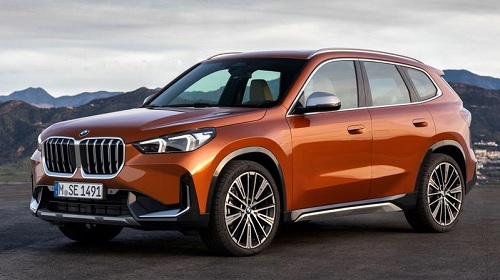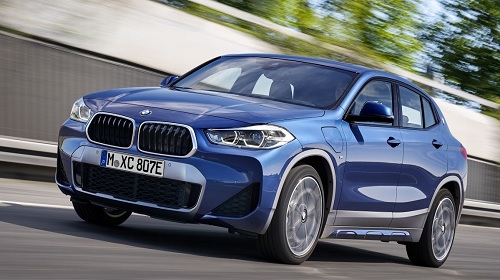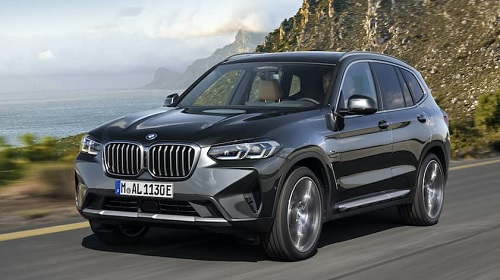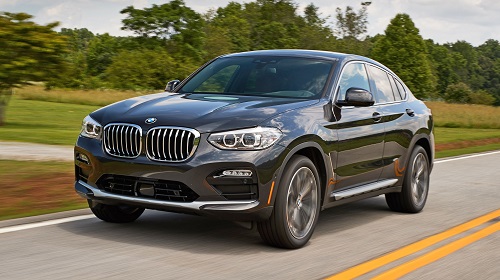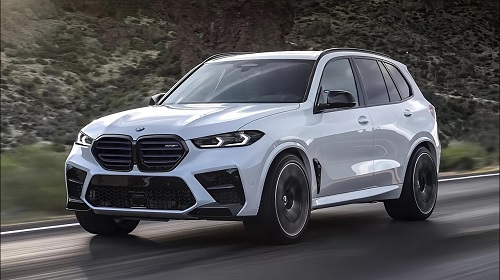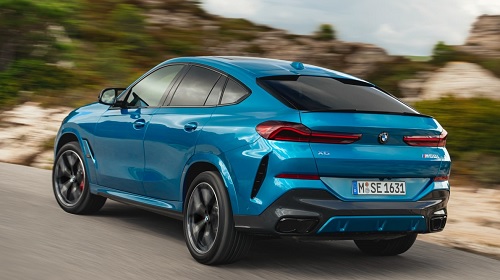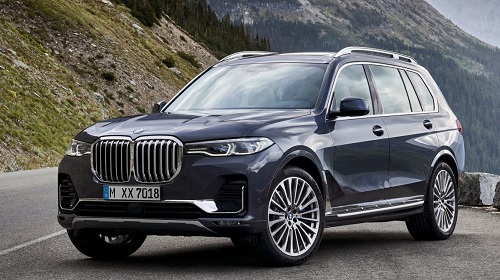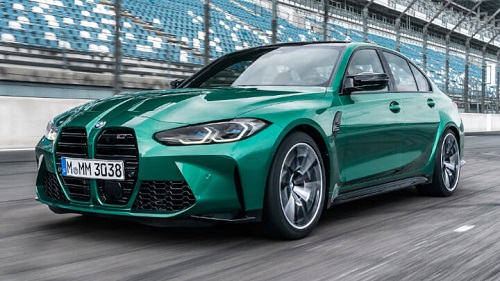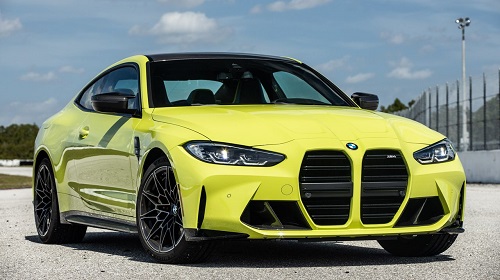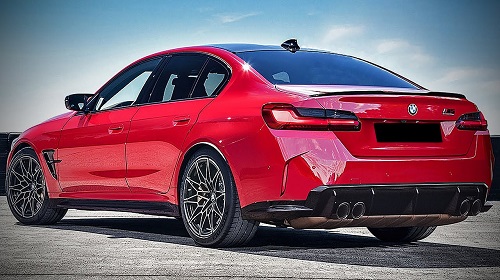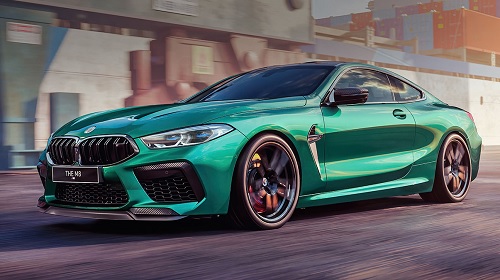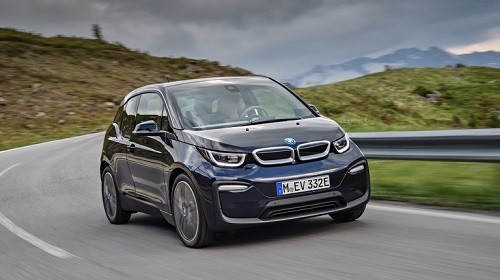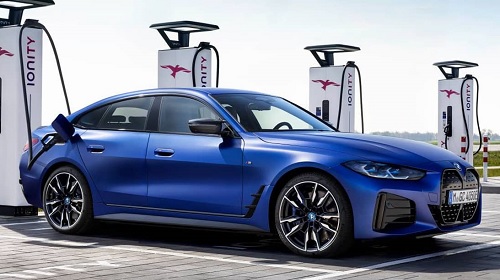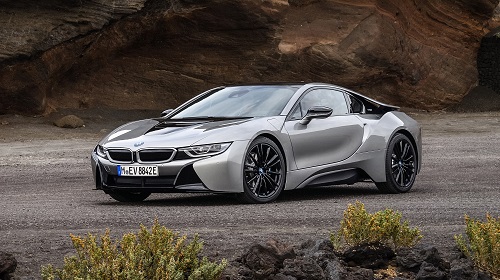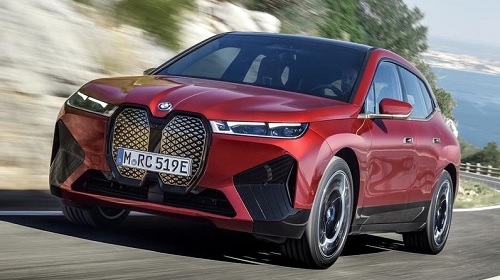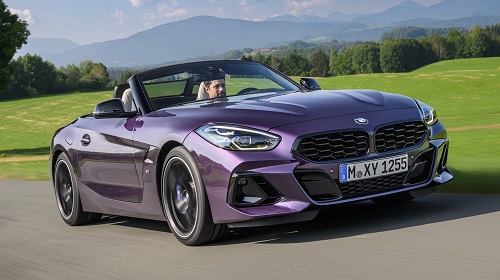
BMW: The Ultimate Driving Experience
BMW AG is a German manufacturer of cars, motorcycles and engines. BMW is headquartered in Munich, Germany. BMW's motto is Freude am Fahren - Driving with pleasure. For English-speaking countries, another motto was coined - The Ultimate Driving Machine.
BMW Models
History of BMW
What does the abbreviation BMW mean?
The BMW history dates back to 1913, when the German engineer Karl Friedrich Rapp founded the Rapp Motorenwerk aircraft engine manufacturing company. Subsequently, on the basis of this company, a new company was created - Bayerische Motoren Werke - BMW GmbH, and officially registered in 1917. A year later, the company was transformed into a joint-stock company - BMW AG. This is how the abbreviation BMW appeared.
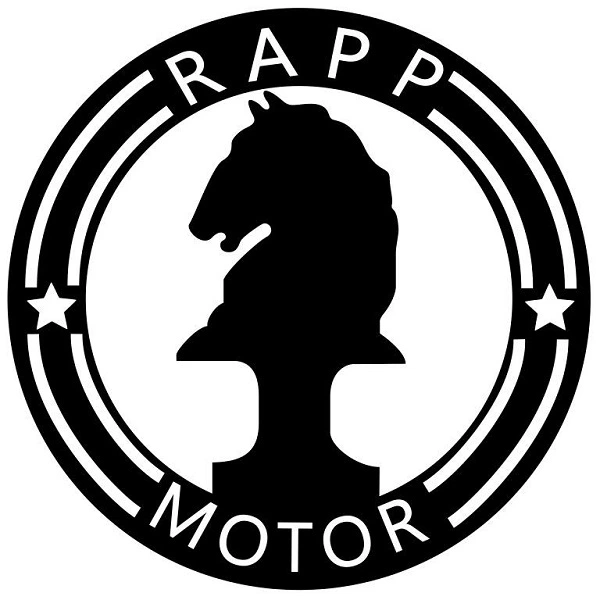
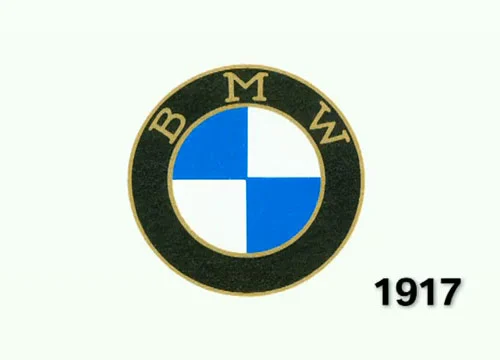
Do you know how the BMW logo came about?
There is still heated debate about what the BMW logo actually means. Some people think that the BMW logo is a stylized propeller, and others that it was necessary to reflect BMW's Bavarian origins in the logo. Therefore, the four sectors of the inner circle of the logo are made in the colors of Bavaria - white and blue. In fact, it's the colors of Bavaria.
BMW and WWI.
As you can see, BMW made engines not only for aircraft, but also for trucks and boats. During the World War I, the demand for engines was big and so things were going well for BMW, but after World War I, as you know, the Treaty of Versailles was concluded and one of the clauses of this treaty was Germany's ban on the production of aircraft and engines to them. And so, in order to keep the company somehow, BMW was forced to switch to the production of agricultural products, brakes for trains, ... and so on.
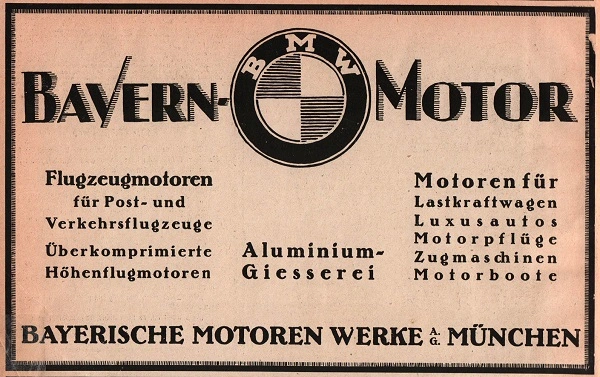
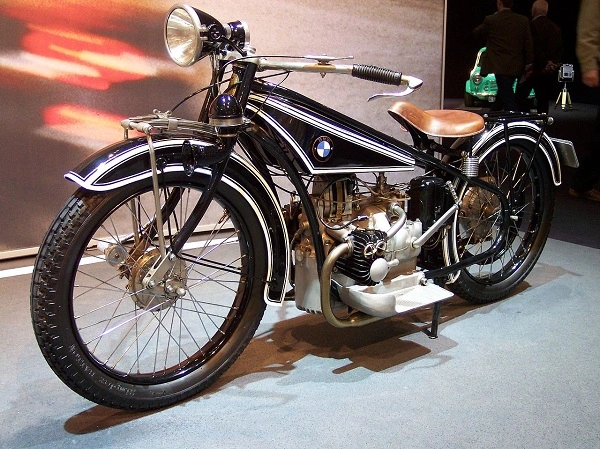
The first BMW motorcycle.
In 1923, at the Berlin Motor Show, the first BMW R32 motorcycle was presented. The motorcycle turned out to be very good in handling and reliable. Until 1926, more than 3 thousand R32 motorcycles were sold, although they were more expensive than competitors. The next motorcycle, sports R37 BMW produced in 1925. The BMW R37 became the go-to racing motorcycle and made the BMW brand famous not only among racing fans, but all over the world.
BMW's first car.
In 1928, BMW bought the car factory in Eisenach, Thuringia, and with it the rights to manufacture a licensed copy of the British car Austin 7 from the Austin Motor Company. And in 1929 the first car of the company was produced BMW Dixi, copy of the Austin 7. The BMW Dixi platform was also used to produce the BMW 309, 315, 319 and 329.
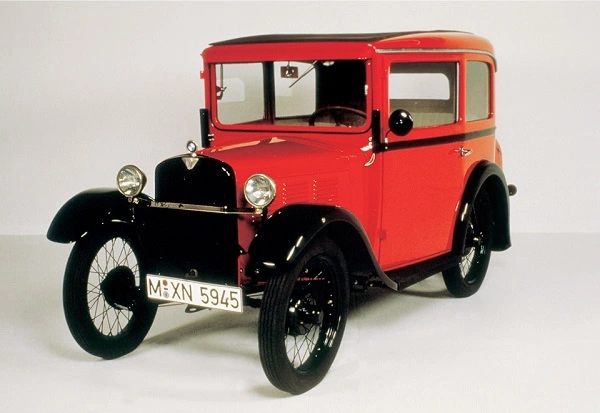
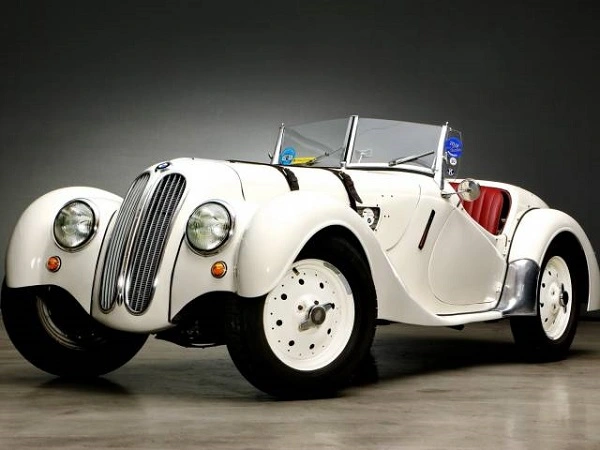
BMW's first sports car.
In 1936, BMW produced the first sports car, the BMW 328. The BMW 328 was innovative for its time, with aluminum chassis, tubular frame and hemispherical engine combustion chamber, which ensured more durable and efficient operation of pistons and valves. The BMW 328 was the winner of many sports competitions of that time.
BMW and World War II.
Since 1933, BMW has been a supplier of aircraft engines for the Luftwaffe. With the outbreak of World War II in 1941, BMW stopped producing cars and launched the production of jeeps, motorcycles, tank guns and other military equipment for the army. But the production aircraft engines were still a priority, for example, BMW produced engines for aircraft Messerschmitt, Focke-Wulf, Junkers and so on. And the most famous motorcycle of the Second World War was the motorcycle R75, which was produced by BMW for the Wehrmacht. BMW engineers also made great strides in the development of jet engines for military aircraft and missiles. There were even developments of tactical rocket weapons for infantry and aviation, which were not available then to the countries of the anti-Hitler coalition.
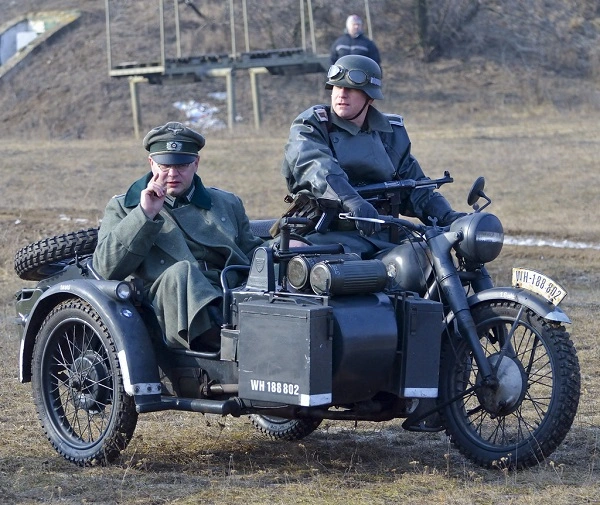
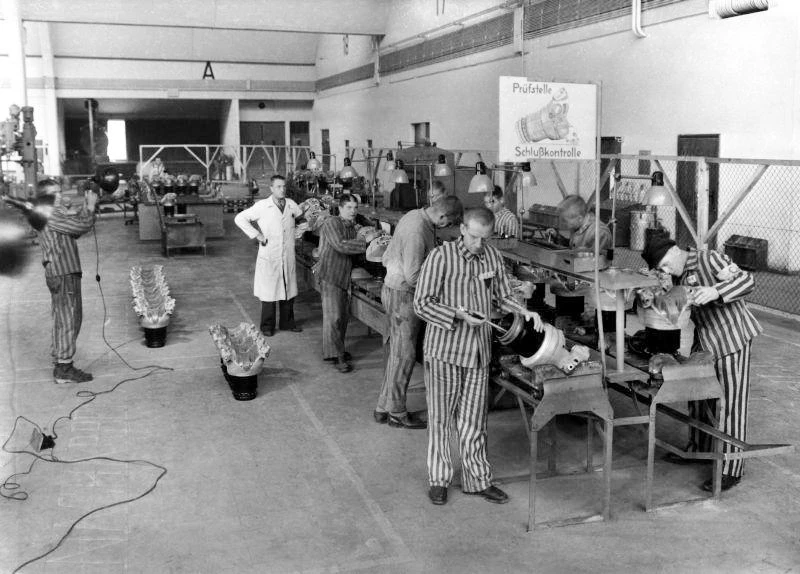
BMW and Munich-Allach concentration camp.
It is also known that BMW during the Second World War made extensive use of the labor of forced laborers and prisoners of concentration camps. Due to the increased demand for aircraft engines during the war, BMW had to expand or build new factories. For example, such workers were housed in the satellite camp Munich-Allach of the Dachau concentration camp. Tens of thousands of people worked at the plant in Allach, more than half of whom were prisoners of concentration camps.
BMW after World War II.
The BMW concern, which was powerful during the war, found itself in a critical condition after the war. Almost all BMW factories were destroyed by the bombing of the anti-Hitler coalition or dismantled. Documentation was confiscated, and equipment was taken out. Also BMW was banned from making aircraft engines. Like other German car companies, it took years for BMW to rebuild, and it wasn't until 1948 that BMW was able to rebuild one of its destroyed factories in Munich and start production motorcycle R24 with a newly developed single-cylinder engine. The next model R25 already had a two-cylinder engine.
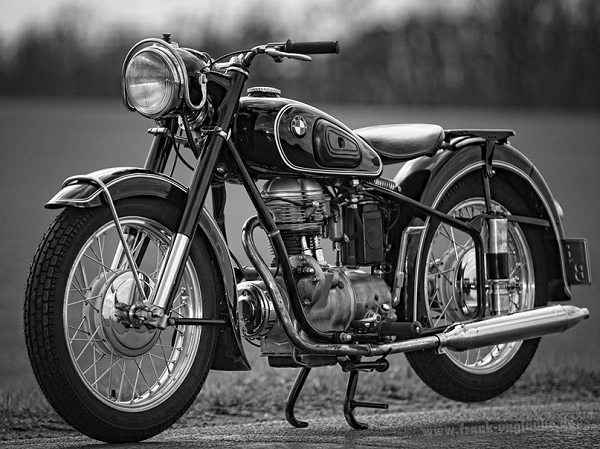
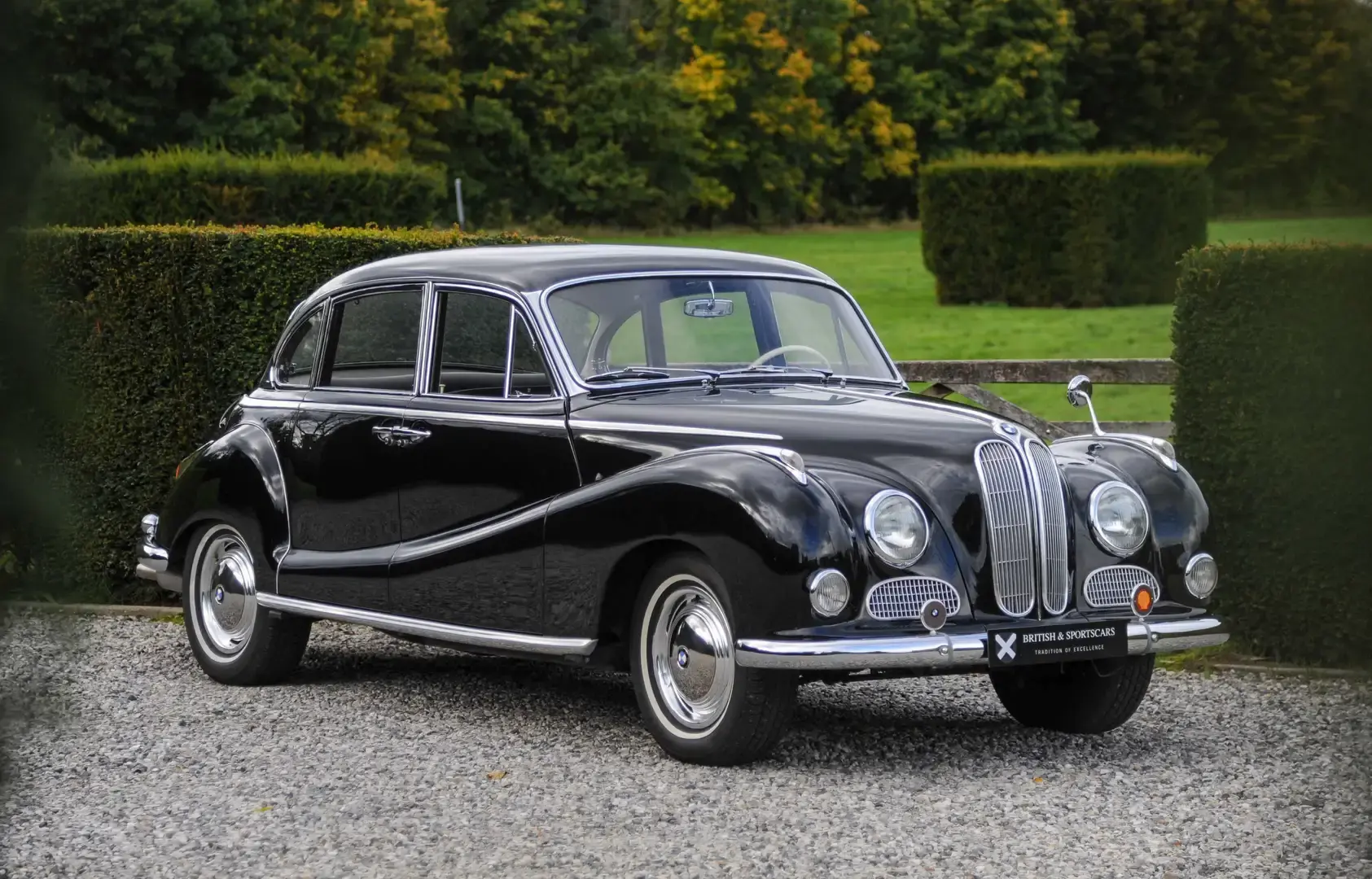
The first post-war BMW car.
In 1951, BMW launched its first post-war car, the BMW 501. And the first mass-produced car, the BMW Isetta, was launched by BMW in 1956, the rights to which were bought from the Italian company Iso. And then in 1956 - sports cars models BMW 503 and 507, and in 1959 the model BMW 700 - the first big serial success BMW.
BMW today.
Today, BMW is one of the largest car and motorcycle manufacturers in the world, with many factories not only in Germany but throughout the world. BMW is also a supplier of engines for Formula 1. In 1994, BMW buys Rover Group, which turned out to be the worst capital investment in the history of BMW and brought only losses. In 2000, BMW disposed of Rover's assets, leaving only the MINI brand. In 2003, BMW bought Rolls-Royce and in the same year a joint venture was formed with Brilliance China Auto - BMW Brilliance Automotive.
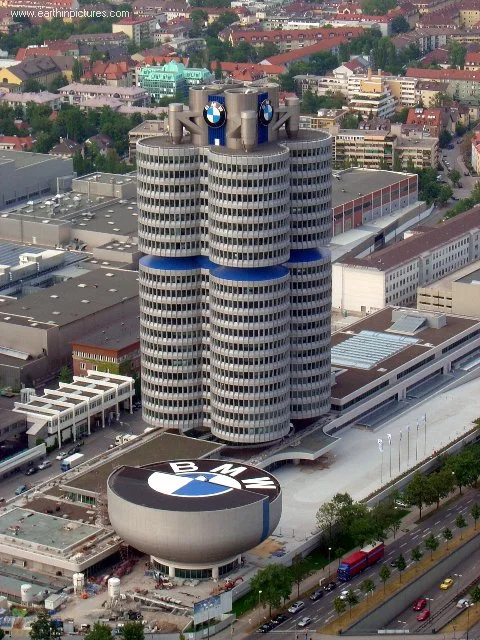
eXus Dev
BMW Cars For Sale
BMW - Reviews
- 4 / 1 Reviews
BMW
Даже не знал что БМВ был так сильно вовлечён во время войны в производство моторов, мотоциклов и другой техники для Вермахта. Можно было бы понять если бы под давлением производили бы они какие нибудь моторы, ну чтоб не уничтожили компанию например. Так ведь инженеры БМВ разрабатывали новые реактивные двигатели и другие новейшие технологии для армии. Так получается что они сотрудничали с нацисткой Германией во время войны. И тем более про узников концлагерей труд которых использовал БМВ так массово на своих заводах. Для меня это новость, спасибо за статью.
Om dit beter te kunnen begrijpen, kunnen we een eenvoudige analogie trekken en nazi-Duitsland vergelijken met huidige Rusland. Net als Duitsland tijdens de Tweede Wereldoorlog viel Rusland ook vandaag Oekraïne aan. Net als toen Duitsland, vernietigt Rusland ook vandaag Oekraïense steden, pleegt oorlogsmisdaden, ... e.z.v. En net zoals in Duitsland tijdens de oorlog, zijn er in Rusland vandaag ook bedrijven die bijvoorbeeld motoren voor tanks of vliegtuigen produceren, nieuwe raketten of drons ontwikkelen, ... enzovoort. Dit is natuurlijk niet acceptabel voor een normaal, adequaat persoon. Maar het probleem is dat elk bedrijf één hoofddoel heeft: zoveel mogelijk geld verdienen. En naast alles werd nog propaganda, zowel in Duitsland tijdens de Tweede Wereldoorlog als in Rusland vandaag, op industriële schaal op gang gebracht. Net zoals de meerderheid van de Duitsers toen de vervolging van de Joden accepteerde en ermee instemde, zo stemt de meerderheid van de Russen vandaag оок in met de vernietiging van Oekraïne. En het is allemaal propaganda. En al deze bedrijven in Rusland die vandaag samenwerken met de Russische autoriteiten zullen hoogstwaarschijnlijk ook na de oorlog blijven werken. C'est la vie.

